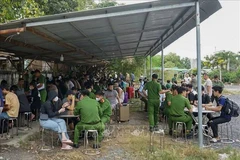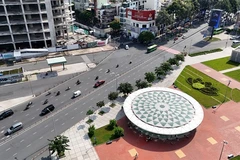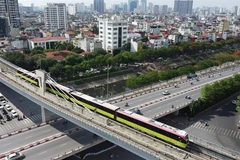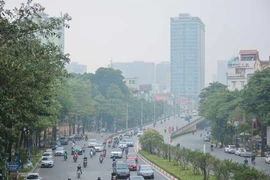Forum participants called for joint efforts from regional localities to mitigate impacts from the phenomenon, emphasising that no province can single-handedly deal with the issue.
Deputy Head of the Steering Committee for the Southwest Region Duong Quoc Xuan declared the review of plans in all fields from transport infrastructure to production to be the first priority of the coordinating organisation.
The impact of climate change should be taken into account in the construction of urban and residential zones, and resettlement and production arrangement, he added.
Cao Van Trong, Vice Chairman of the Ben Tre provincial People’s Committee, reported that his province has invested in building and upgrading facilities in response to climate change, but has encountered difficulties due to the lack of coordination with other localities in the region.
At the forum, held in Ho Chi Minh City from February 2-3, delegates called for increased investment from the Government and international organisations to help the region tackle climate change.
They also stressed the need for consultations and advice from experts in the field in designing response measures and organising activities to raise public awareness of climate change impacts.
Participants suggested that the Steering Committee for the South-western Region can serve as the coordinator in the field.
The Mekong Delta region, the largest plain in Vietnam , is home to over 17 million people.
The region, which comprises 13 provinces and cities, accounts for 27 percent of the national GDP and 90 percent of Vietnam ’s total rice export volume. Large aquaculture zones are also located here, contributing nearly 60 percent of the country’s aquatic product export value and creating jobs for more than six million people.
However, Mekong Delta is believed to be one of the most vulnerable areas to the impacts of climate change in the world. It frequently suffers from floods, droughts and unusual weather patterns.
Scientists predict a one-metre rise in sea level could result in 40 percent of the Mekong Delta being submerged. The region currently loses 1,000 ha of land each year due to coastal erosion.-VNA
























